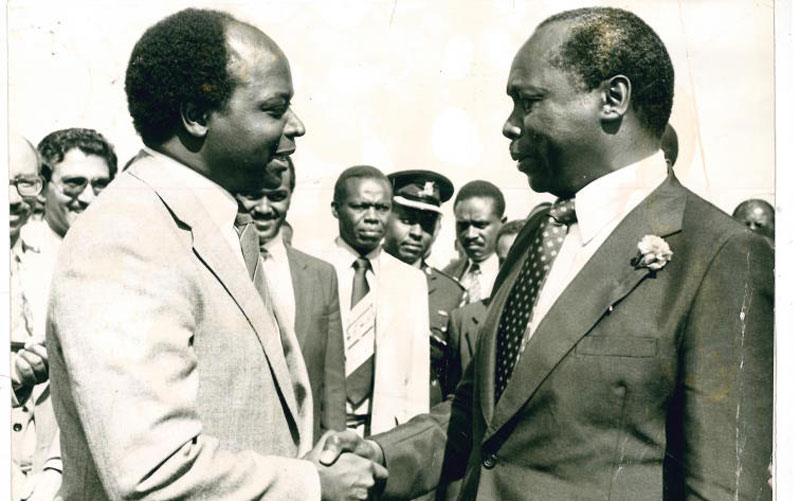×
The Standard e-Paper
Fearless, Trusted News

President Daniel arap Moi is received back home from an OAU summit by Vice President Mwai Kibaki at JKIA in 1980 [File]
While President Mwai Kibaki and his predecessor Daniel arap Moi took different political paths after Kenya attained its independence, their relationship began quite early.